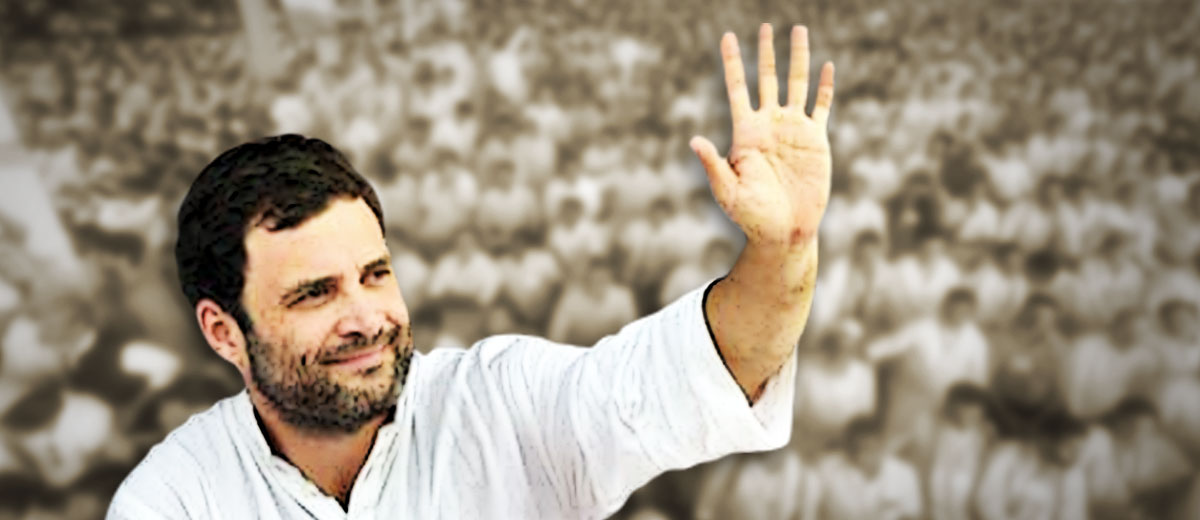Congress needs alliance with BSP in the long run
Updated by admin on
Wednesday, December 12, 2018 05:33 PM IST

New Delhi:
The results of the elections to three States – MP, Rajasthan and Vhhatisgarh – may have brought the Congress back to power and at the forefront of the struggle to dislodge the BJP from power at the Centre, but an analysis of the voting trends shows that the Congress needs to tie up with the BSP in various States to pip the BJP at the hustings.
Rajiv Gandhi was said to have been keen on including the BSP in the Congress-led alliance in MP, Rajasthan and Chhatisgarh but his view was overturned by the local leaders in these States who did not want to hand over a large number of seats to Mayawati’s party.
The talks failed over what was considered as unreasonable demands by the BSP. While the Congress was ready to concede about 25 seats in MP, the BSP insisted on at least 40 seats. The Congress was also upset that the BJP sought seats considered to be Congress strongholds.
In the ultimate analysis, the Congress has scraped through with a wafer-thin majority in MP and Rajasthan, thanks to Independents, reducing dependence on BSP support. Three Independents, who are actually Congress rebels, have won in MP, and they have given letters of support to a Congress government in Madhya Pradesh. The lone Samajwadi Party MLA has also given his support in writing.
With the Congress securing 114 seats, (just one short of the half-way mark in the 230 strong MP Assembly and five more than the 109 secured by the BJP) the support of these 4 MLAs takes the number of MLAs backing a Congress government to 118. Yet, the Congress is also said to be keen on securing the support of two BSP MLAs, so as to have a comfortable majority in the Assembly. It is significant that the Congress will approach the BSP for support only after ensuring majority support (total 118 of 230 MLAs in the new House). BSP leader Mayawati is said to be inclined to back the Congress government in MP as she does not want to be seen with the BJP with crucial elections to the Lok Sabha only a few months away.
In Chhatisgarh, the Congress managed to increase its vote share from 41.6 in 2013 to 43 per cent now, the BJP vote share dropped from to 42.3 to 33 per cent now, largely attributable to the Ajit Jogi-ld JCCJ, which ended up with 7.5 per cent. Ironically, the JCCJ was seen by some political analysts as likely to cut into Congress votes, and paving the way for BJP to retain power in Chhatisgarh, but has actually taken away votes from the BJP.
Yet, the broad picture that emerges is that the Congress can ill-afford to keep the BSP out of its alliance. In fact, the BSP holds the key to the Congress plan of unseating the BJP at the Centre, as a Mahagatbandhan between BSP and SP could give their combine over two-thirds of the 80 LS seats up for grabs from Uttar Pradesh. The Congress also seeks to be a part of this alliance in UP but both the BSP and SP do not want to provide many seats to the national party. The Congress is ready to be a junior partner in the UP alliance.
In States like MP, Rajasthan, Chhatisgarh, and a few others in the Hindi heartland, the BSP could play a crucial role. The Congress could be expected to have an understanding with the BJP, with an eye on the LS polls.
Ever since Kanshi Ram launched the Bahujan Samaj Party, the Congress has suffered electoral reverses in the cowbelt. Once considered the stronghold of the Congress, the Dalit vote-bank had shrunk for the national party. The Congress has realized that it has to align with BSP to overcome the BJP in many States. The BSP and SP too, in the wake of the Congress success in the three States, may be expected to include the Congress in the Mahagatbandhan in UP in view of the strong performance by the national party in the Hindi heartland. The UP alliance may not be easy given the Congress claim for a larger share of seats than provided for by the regional parties.
Both sides may have to climb down from a hardline stance, and get into the alliance mode given the ground realities. The results of the three States is a clear pointer on which way these parties have to move.
By R. Rangaraj